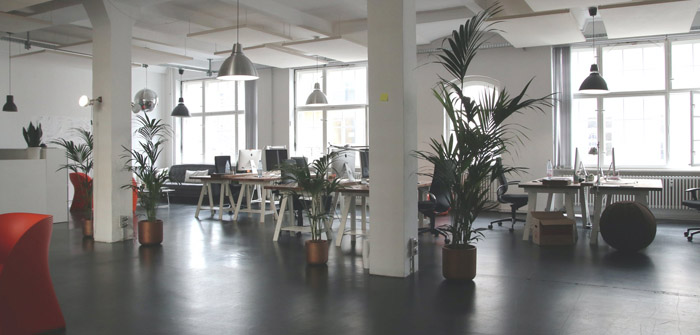(Photo by Marc Mueller from Pexels)
Now, more than ever, office space needs are changing. Some companies are finding that in the age of COVID, some employees can work well from home and don’t need a dedicated office area. In some cases, those working in an open office will now require more privacy. Whatever your unique situation, you might be considering a change in your office environment and that brings up a question of how appropriate it is to lease or buy your new space.
The decision of whether to lease or buy your next office space involves several factors. Availability of property, of course, is the first consideration. If you can’t find what you need for rent, you may have to commit to purchase, and vice versa. Certainly, the tight commercial market in Central Oregon makes it difficult to find an exact fit. Two local companies that have unique space needs are Medline in Redmond and Lonza in Bend. They have very specific needs for their work environment and this can only be accommodated by having their own facility. However, you may find landlords who are willing to work with you by remodeling existing properties.
Cost is also important, and if you are choosing between two equally attractive properties, it pays to do a cost comparison for the short and long term. However, each option has unique benefits and challenges that affect how you do business as well as your pocketbook. Here are some considerations to help you make the best decision for your business.
The three questions you should ask yourself:
How long can you commit to a location or building? Financial studies have shown that, for a short term, leasing is more cost-effective than buying. However, if you are considering a property where you can make your headquarters for a decade or more, then buying becomes more financially attractive. One analysis indicated that seven years seems to be the tipping point, but each case differs. Consider consulting with an experienced commercial real estate broker who can help with this analysis.
How fast is your business growing? If your business is booming and you anticipate rapid growth in the next few years, then leasing gives you greater flexibility to move if you outgrow the new facilities. If you purchase, you may outgrow the building or purchase more building than you need, with the associated expenses. This also applies if you think your business may downsize in the next few years.
How’s your local economy? Historically, real estate has been a stable investment opportunity, but now it’s more volatile depending on the location. In Central Oregon, there has been a consistent increase in land and building values making this a good time to invest. Here are some additional pros and cons for your consideration.
Pros and cons of leasing:
Pros
- Leasing has low initial financial commitment with no down payment, just a deposit.
- Lease payments are tax-deductible.
- The landlord might handle repairs and maintenance depending on whether it is a modified gross or a NNN lease.
- Some landlords will remodel to suit and depending on the length of the lease, might amortize the cost over the term of the lease.
- The landlord may pay for some of the maintenance costs and utilities.
- It’s easier to leave if you outgrow the space.
Cons
- Rent usually increases annually and when you renew a lease.
- The landlord may have rules concerning the use and state of outside areas that may impact parking, outside storage space and impact on neighbors.
- Even if you have a good landlord now, that could change in the future.
Pros and cons of buying:
Pros
- You build equity, which you can use as collateral in loans.
- If you have extra space, you can rent it out to add to your revenue.
- Your mortgage payments will likely stay steady.
- Interest payments are tax-deductible.
- You can claim building depreciation.
- You can make any changes to the building you like (within local ordinances).
- Since you own the property, when you retire, you can sell it or become a landlord by leasing to another business.
Cons
- There are huge initial expenditures for down payment and closing fees.
- There is a higher opportunity cost. In other words, the money you invest in the property could be used to grow your business in other ways. You need to determine if that is an issue.
- You pay for remodeling, repairs and maintenance.
- If you outgrow the space, you will have to sell the property if there is not option to expand.
Each business has a different reason to purchase or lease their next property. It depends on how your business is faring, whether cash flow is more important than equity, if you prefer to control your property or have the ease of someone else caring for it and myriad other factors. Take time to consider the pros and cons so that your decision is well informed.
Bruce Barrett is a Commercial Real Estate Broker with Windermere Central Oregon Real Estate and a Certified SCORE Mentor. He can be reached at 541-410-3484. Whether you want to start or grow your business, SCORE can help. Find a mentor today at centraloregon.score.org.




